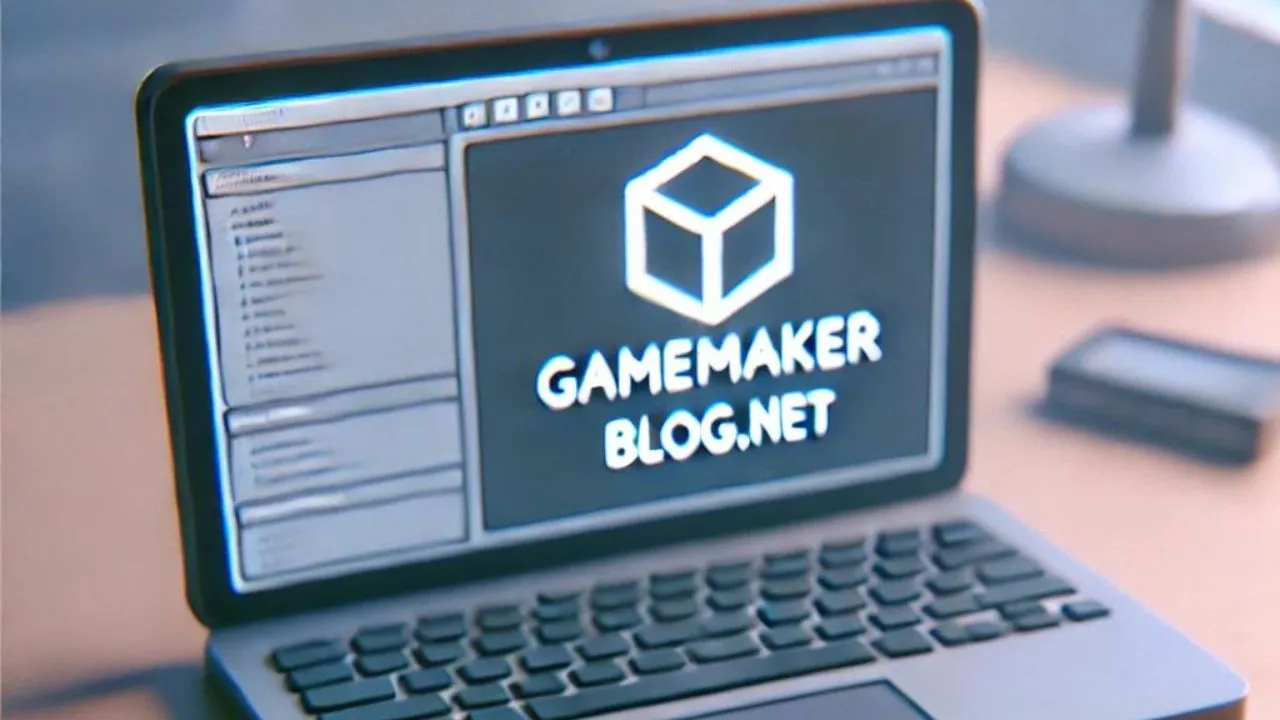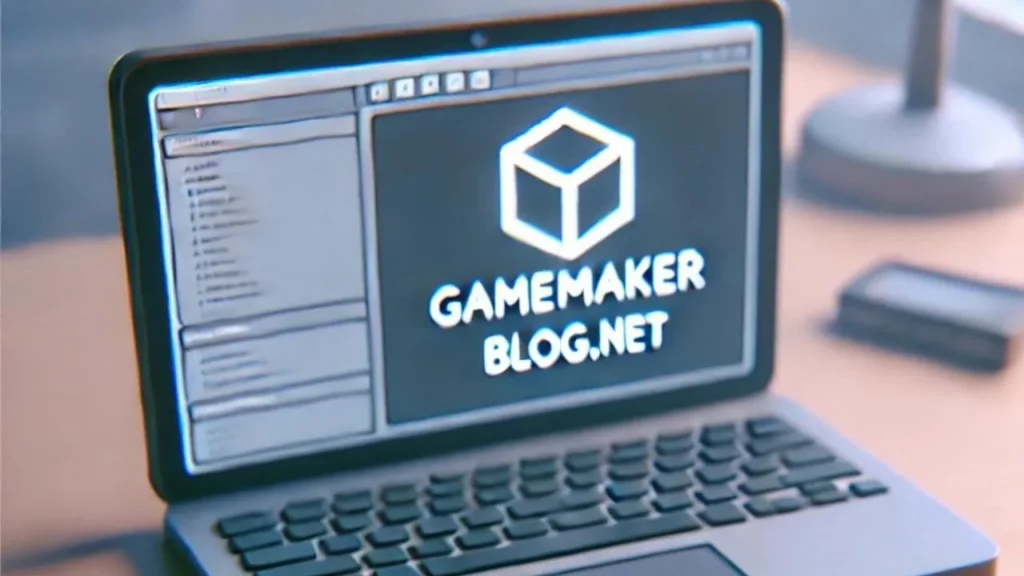Game development has seen tremendous growth over the last few years, largely driven by accessible tools like GameMaker. Whether you’re an aspiring indie developer or a seasoned professional, tools that simplify game creation without requiring extensive coding skills are invaluable. GameMaker Studio, one of the most popular platforms, provides such a solution. Through its intuitive drag-and-drop interface and powerful scripting language, it has become a top choice for developers worldwide.
In this article, we will explore the key features, benefits, and use cases of GameMaker Studio. We’ll also examine some of the challenges developers face and offer practical solutions to get the most out of this powerful platform.

1. What is GameMaker Studio?
GameMaker Studio is a robust game development platform created by YoYo Games. It offers developers the ability to design 2D games without needing extensive programming knowledge. With its drag-and-drop interface, even beginners can quickly build complex games. However, it also includes a scripting language, GameMaker Language (GML), for more advanced users who want deeper control over their projects.
GameMaker supports multi-platform exports, allowing developers to release their games across platforms like Windows, macOS, Android, iOS, and more. This versatility has made it a go-to tool for indie developers and small studios alike.https// gamemakerblog.net is a great place for both new and experienced game makers. It’s full of helpful guides,technology, tips, and stories.
2. How GameMaker Studio Simplifies Game Development
GameMaker Studio is designed to streamline game creation, especially for beginners. Its user-friendly interface makes it possible for developers to focus on design and gameplay rather than complex coding. Here are some key ways it simplifies game development:
- Drag-and-Drop System: Create complex game mechanics without writing code.
- Asset Management: Easily organize and manipulate sprites, sounds, and objects.
- Room Editor: Design game levels visually.
- Built-in Functions: Pre-built functions allow for quick deployment of common tasks, like player movement or collision detection.
This combination of ease-of-use and power makes it one of the most accessible game engines on the market.
3. Key Features of GameMaker Studio
GameMaker Studio comes packed with features that cater to both beginner and advanced users. Some of its key features include:
- Cross-Platform Support: Export games to multiple platforms including Windows, macOS, HTML5, iOS, Android, and more.
- GML (GameMaker Language): A scripting language designed to give developers more control.
- Physics Engine: Simulate realistic physical behaviors like gravity and collisions.
- Shaders: Add custom graphical effects with ease.
- Integrated Debugger: Quickly identify and fix bugs within your game.
- Marketplace: Access a wide range of assets, extensions, and tools created by the GameMaker community.
4. GameMaker Studio Pricing and Licensing
GameMaker Studio offers various pricing plans to suit different levels of developers. The pricing is tiered, allowing developers to choose a plan based on the platforms they want to export to:
- Free Version: A basic version for learning GameMaker and making small projects.
- Creator License: A low-cost option with support for Windows and macOS.
- Developer License: Includes mobile export options for Android and iOS.
- Console License: Higher-tier license for exporting games to consoles like PlayStation, Xbox, and Nintendo Switch.
These flexible options allow developers at all levels to find a plan that fits their needs.
5. Benefits of Using GameMaker Studio
GameMaker Studio offers numerous advantages for both novice and experienced developers:
- Easy to Learn: Its drag-and-drop system makes game development accessible for beginners.
- Powerful Scripting: GML provides deeper control for more complex projects.
- Versatility: From mobile games to console games, GameMaker supports a wide range of platforms.
- Time-Efficient: Pre-built functions and tools help speed up the development process.
- Active Community: GameMaker has a large community of developers who share assets, tips, and tutorials, making it easier to learn and grow.
These benefits make it a highly efficient and flexible tool for game developers.
6. GameMaker vs. Other Game Engines
When comparing GameMaker Studio to other engines like Unity or Unreal Engine, each has its unique strengths. Here’s how GameMaker stacks up:
- Ease of Use: GameMaker is arguably more beginner-friendly compared to Unity or Unreal, which require a deeper understanding of coding.
- 2D Focus: GameMaker excels in 2D game development, while Unity and Unreal are more suited for 3D games.
- Community: GameMaker has a niche but active community, making it easier to find 2D assets and advice.
- Cost: GameMaker is often more affordable for indie developers compared to Unity’s subscription-based model or Unreal’s royalty-based system.
7. Real-World Applications of GameMaker Studio
GameMaker Studio is used by indie developers and small studios to create a variety of games, from casual mobile games to more complex PC and console releases. Here are some common applications:
- Mobile Games: With easy export options, GameMaker is frequently used to create mobile games for Android and iOS.
- PC Games: Many indie PC titles, particularly in the 2D genre, are built using GameMaker.
- Console Games: Several well-known indie games for consoles like Nintendo Switch and PlayStation have been developed using GameMaker.
This flexibility makes it a practical choice for developers looking to release their games across different platforms.
8. Popular Games Created with GameMaker
Some highly successful games have been developed using GameMaker Studio, showcasing the platform’s capabilities. Popular titles include:
- Undertale: A role-playing game that became a cultural phenomenon.
- Hotline Miami: A fast-paced action game praised for its retro style and challenging gameplay.
- Hyper Light Drifter: A visually stunning action-adventure game with a unique art style.
- Nidhogg: A competitive two-player sword-fighting game.
These games demonstrate GameMaker’s potential for creating critically acclaimed and commercially successful titles.
9. Challenges of Game Development in GameMaker
Like any game development platform, GameMaker has its challenges. Some common issues developers encounter include:
- Performance: While GameMaker handles 2D games well, performance can become an issue in larger projects or games with complex mechanics.
- Limited 3D Capabilities: GameMaker is designed primarily for 2D games. While 3D development is possible, it’s much more challenging than in engines like Unity or Unreal.
- Steep Learning Curve with GML: While GameMaker is easy to pick up for beginners, mastering GML can be difficult for those without coding experience.
10. How to Overcome Common GameMaker Challenges
Overcoming these challenges often requires a mix of optimization techniques and leveraging community resources:
- Optimize Performance: Reduce the number of objects and sprites on-screen to improve performance. Utilize GameMaker’s built-in profiler to identify bottlenecks.
- 3D Limitations: If you need 3D capabilities, consider using another engine or limiting 3D features to basic elements like isometric views.
- Mastering GML: Take advantage of the wealth of online tutorials, documentation, and community forums to learn GML gradually. Practice small projects to build up your skills.
11. GameMaker’s GML Scripting Language: An Overview
GameMaker Language (GML) is a custom scripting language designed specifically for GameMaker Studio. It allows developers to control every aspect of their game. While the drag-and-drop system is useful for beginners, GML provides advanced functionality like:
- Custom Game Logic: Implement complex behaviors and mechanics.
- AI Programming: Create smarter and more responsive non-player characters.
- Optimized Performance: Write efficient code to enhance game performance.
For developers who want more flexibility, learning GML can open up many possibilities.
12. GameMaker for Beginners: A Step-by-Step Guide
Starting with GameMaker is relatively simple. Here’s a basic guide to help beginners get started:
- Download and Install: Start by downloading the free version from the official GameMaker website.
- Create a New Project: Select a template to create your first game.
- Add Sprites and Objects: Use the asset manager to import graphics and assign them to game objects.
- Design Your Level: Use the room editor to lay out your game world.
- Add Logic: Use either drag-and-drop blocks or GML to define how your game works.
- Test and Debug: Playtest your game frequently to identify bugs and make adjustments.
This beginner-friendly approach makes it easy for anyone to jump into game development.
13. Advanced Techniques in GameMaker Studio
Once you’ve mastered the basics, you can explore more advanced features in GameMaker, such as:
- Shader Effects: Add visual flair to your game with custom shaders.
- Networking: Implement multiplayer functionality using GameMaker’s networking tools.
- Custom Particle Systems: Create intricate visual effects like fire, smoke, or magic spells using particles.
These advanced techniques will help you create more polished and engaging games.
14. Best Practices for Game Development with GameMaker
To get the most out of GameMaker, follow these best practices:
- Start Small: Begin with small projects to learn the ins and outs of the platform.
- Organize Assets: Use clear naming conventions and folders to keep your project organized.
- Test Often: Playtest regularly to catch bugs early.
- Use the Marketplace: Leverage GameMaker’s marketplace for assets and extensions to save time.
- Stay Updated: Follow YoYo Games’ blog and community forums to keep up with the latest updates and techniques.
Following these best practices will help ensure a smoother development process and higher-quality games.
15. Future of GameMaker Studio
As technology continues to evolve, so does GameMaker Studio. YoYo Games has hinted at further improvements, including better 3D support, enhanced performance, and more cross-platform options. With its strong community and consistent updates, GameMaker Studio is likely to remain a popular choice for indie developers in the years to come.
16. Conclusion
GameMaker Studio is a versatile, beginner-friendly game engine that empowers developers to create high-quality 2D games with ease. Its combination of drag-and-drop functionality and powerful scripting makes it suitable for both hobbyists and professionals. While it has its challenges, with the right techniques and dedication, GameMaker can be used to create commercially successful games.
17. FAQs
1. Is GameMaker Studio free? Yes, GameMaker offers a free version, though advanced features require a paid license.
2. Can I make 3D games with GameMaker? While GameMaker is primarily a 2D engine, basic 3D features are available. However, it’s not ideal for complex 3D games.
3. Do I need to know programming to use GameMaker? No, beginners can use the drag-and-drop interface, but programming in GML offers more control.
4. Can I publish my GameMaker game on consoles? Yes, but you will need a higher-tier license to export to consoles like PlayStation, Xbox, and Nintendo Switch.
5. What platforms can I export my GameMaker game to? GameMaker supports exports to Windows, macOS, Android, iOS, HTML5, and consoles, depending on the license purchased.



